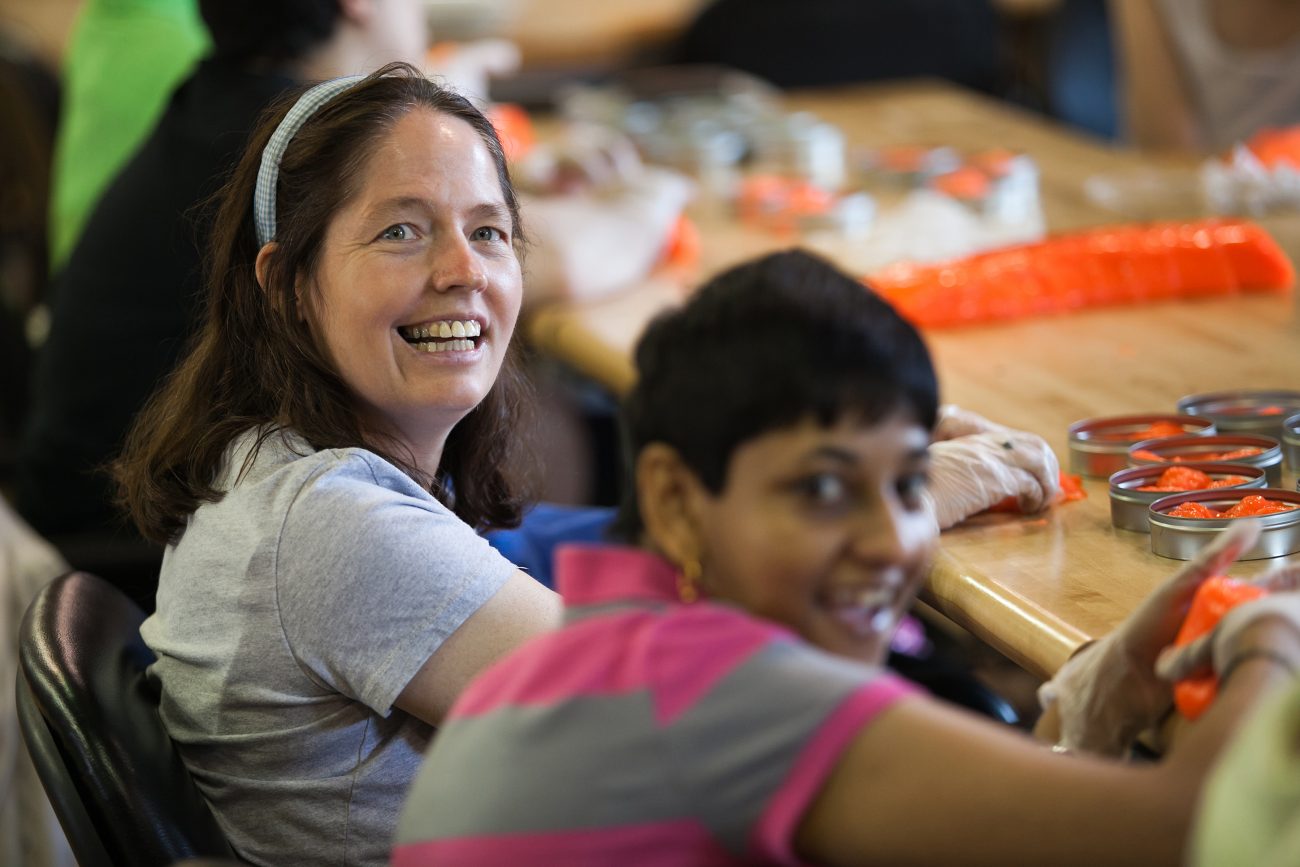
Residents of the archdiocesan Communities of Don Guanella and Divine Providence enjoy a break from an activity session, July 20, 2015. COVID has accelerated the need to create a more inclusive world for persons with disabilities, said international and local experts. (Photo courtesy of Barbara Jenkins/Communities of Don Guanella and Divine Providence)
COVID has accelerated the need to create a more accessible and inclusive world for persons with disabilities, said international leaders and local experts.
For close to 30 years, the Dec. 3 observance of the International Day for Persons with Disabilities has been a kind of annual checkpoint on global progress in disability awareness and action.
However, the pandemic has shown the initiative, launched by the United Nations (U.N.) in 1992, is still a long way from its initial goal of “achieving a society for all by 2010.”
[hotblock]
According to the U.N., the world’s 1 billion persons with disabilities remain among “the most excluded groups” in society, suffering a disproportionately high number of fatalities due to the coronavirus.
For that reason, the theme for this year’s celebration was “Building Back Better: Toward a Disability-inclusive, Accessible and Sustainable post-COVID-19 World.”
In his message for the occasion, Pope Francis stressed that “frailty is part of everyone’s life,” despite “a narcissistic and utilitarian mentality” that works to marginalize those with disabilities.
“All of us are in the same boat in the midst of a turbulent sea that can frighten us,” said the pope.
That insight resonated with Immaculate Heart of Mary Sister Kathleen Schipani, director of the archdiocesan Office for Persons with Disabilities and the Deaf Apostolate. Established in 1991, the office fosters the full inclusion of persons with disabilities into the life of the church, and serves as a pastoral resource for parishes, families and individuals.
“Pope Francis reminds us that vulnerability is intrinsic to the essential nature of humanity,” said Sister Kathleen. “Families, friends and those who serve with persons with disabilities know this to be true.”
Archdiocesan ministries to those with disabilities have been “building back better” for decades, said Servant of Charity Father Dennis Weber, director of mission identity and integration for the developmental programs division of Catholic Social Services (CSS).
[tower]
“Heroic efforts” coupled with a “striking and steadfast dedication” to the program’s clients bespeak a “support and service that has always been present,” he said.
In fact, said Sister Kathleen, outreaches “related to disabilities have been going on in the Archdiocese of Philadelphia … for at least a hundred years.”
An archdiocesan deaf ministry has been in place for more than a century, she said, with Archbishop Ryan School for the Deaf opening its doors in 1911.
St. Edmond’s Home for Children, the first Catholic home of its kind in the U.S., was established in 1916 to serve polio victims, and the Rosemont-based intermediate care facility (ICF) now supports children aged six weeks to 21 years who are affected by a range of profound physical and intellectual disabilities. This past summer, St. Edmond’s opened its first group home for young adults.
Four archdiocesan schools of special education – Archbishop Ryan School for the Deaf, St. Katherine Day School, Our Lady of Confidence Day School and St. Lucy Day School for Children with Visual Impairments — instruct students with sensory, cognitive and physical impairments, as well as those on the autism spectrum.
Administered by CSS, the Communities of Don Guanella and Divine Providence (DGDP) are a state-licensed ICF for individuals with intellectual disabilities, ensuring a continuum of support through community and campus-based living arrangements, life sharing through family living, in-home assistance, respite care and day programs.
Staff at all of these ministries are “martyrs of charity,” said Father Weber, since they “(bear) witness, in a heroic and saintly way, to the virtues of compassion, mercy, justice and love.”
Their work, he said, is based on “recognizing the inherent and innate dignity of the individuals we are privileged to serve.”
Denise Clofine, administrator of St. Edmond’s Home, agreed.
“Those who serve do so with much compassion and dignity,” she said. “We are all God’s children, one human race, and we ask you to join us in creating a future where individuals with disabilities – and all God’s children – are treated equally.”
Sister Kathleen added she hopes “clergy, parish staff and parishioners will … take to heart this inspiring message, so that as the body of Christ …. we can be a church” built, as Pope Francis said in his message, “built on the rock of inclusion and active participation.”
PREVIOUS: Letter campaign says ‘Thank you, Father!’ to hardworking priests
NEXT: Local Catholics raise more than $1M for charity in a single day



Share this story